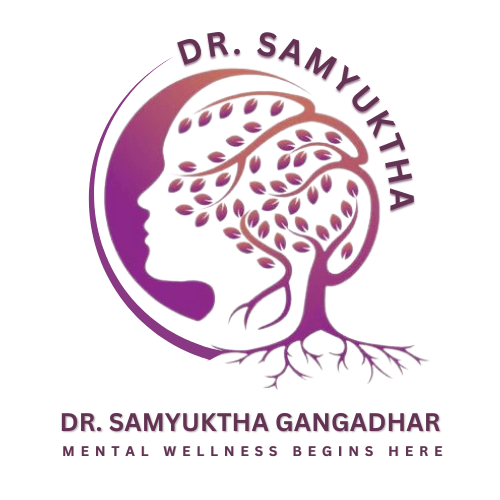Anxiety attacks can strike without warning, leaving individuals feeling overwhelmed, vulnerable, and sometimes immobilized by fear. It’s essential to know there are effective treatments for anxiety attacks and strategies available to help manage these intense experiences. At Pushpa Mind Care, Dr. Samyuktha Gangadhar, M.D. (Psychiatry), offers compassionate care and evidence-based solutions to help patients regain control and peace.
Whether it’s understanding techniques for instant relief or long-term treatment options, let’s explore approaches that can provide calm, empower mental wellness, and improve quality of life.
Understanding Anxiety Attacks and Their Impact
Anxiety attacks, often referred to as panic attacks, are sudden episodes of intense fear or discomfort that can include physical symptoms like rapid heart rate, chest pain, sweating, and dizziness. While anxiety attacks can vary in duration and intensity, they can be particularly distressing, especially if an individual doesn’t know how to manage them.
Recognizing the Symptoms of an Anxiety Attack
Identifying an anxiety attack can be the first step in managing it effectively. Common symptoms include:
- Rapid or pounding heartbeat
- Sweating and trembling
- Difficulty breathing or a sensation of tightness in the throat
- Nausea or abdominal discomfort
- Dizziness, lightheadedness, or fainting sensations
- Fear of losing control or “going crazy”
Understanding these symptoms can empower patients to seek timely help and prepare them for effective treatment methods.
Top Treatments for Instant Anxiety Attack Relief
For those experiencing anxiety attacks, immediate relief can be a priority. Here are some strategies and treatments that can help provide instant calm when panic hits.
1. Breathing Techniques

Controlled breathing exercises are effective in calming the body’s stress response. Studies published in the Journal of Psychiatric Research have shown that slow, deep breathing reduces cortisol (stress hormone) levels, promoting relaxation.
Technique to Try: Practice 4-7-8 breathing:
- Inhale through the nose for 4 seconds.
- Hold the breath for 7 seconds.
- Exhale through the mouth for 8 seconds.
Practicing this technique regularly can make it easier to activate during an anxiety attack.
2. Grounding Exercises
Grounding techniques are useful to bring focus back to the present moment, reducing the intensity of the attack. Research on mindfulness-based therapy shows grounding exercises improve emotional regulation, helping to combat anxious thoughts.
Technique to Try: The 5-4-3-2-1 method:
- Identify 5 things you can see.
- Identify 4 things you can touch.
- Identify 3 things you can hear.
- Identify 2 things you can smell.
- Identify 1 thing you can taste.
3. Progressive Muscle Relaxation (PMR)
PMR involves tensing and relaxing muscle groups in a systematic way, which reduces overall tension in the body and mind. This method is supported by clinical evidence as an effective anxiety reduction technique.
Technique to Try: Start with your toes and gradually move up, tensing and then releasing each muscle group. This exercise distracts the mind while physically easing tension.
Lifestyle Changes and Long-Term Treatments for Anxiety Attacks
While instant relief is crucial, long-term treatments can significantly reduce the frequency and severity of anxiety attacks. At Pushpa Mind Care, Dr. Samyuktha Gangadhar incorporates a holistic approach, combining therapeutic and lifestyle strategies to help manage anxiety in a sustainable way.
1. Cognitive Behavioral Therapy (CBT)

CBT is a gold-standard treatment for anxiety disorders, supported by decades of research. It involves identifying and changing negative thought patterns that contribute to anxiety. Studies show CBT can lead to a 70% reduction in panic symptoms when consistently practiced over time.
During sessions, Dr. Gangadhar works with patients to reframe anxious thoughts, empowering them to respond differently when panic arises.
2. Medication Options
For some, medication is a beneficial part of anxiety management. Common options include:
- Selective Serotonin Reuptake Inhibitors (SSRIs): These are commonly prescribed for long-term management of anxiety.
- Benzodiazepines: Often used for immediate relief, though generally prescribed for short-term use due to the potential for dependence.
Dr. Gangadhar carefully evaluates each patient’s symptoms and history before recommending medication, ensuring it aligns with individual needs.
3. Mindfulness and Meditation Practices
Mindfulness practices, including meditation, have been shown to reduce the intensity of anxiety attacks. Harvard studies indicate that meditation changes brain patterns associated with stress and anxiety, leading to more calm and focused states.
Regular practice not only aids in managing anxiety attacks but also improves overall mental health, resilience, and emotional balance.
4. Physical Activity and Yoga
Exercise, especially aerobic exercise, has been found to significantly reduce anxiety symptoms. Yoga combines both physical activity and breathwork, which can lower heart rate and decrease anxiety.
Technique to Try: Incorporate 30 minutes of moderate activity, such as walking or yoga, three times a week to help maintain balance in the nervous system.
Expert Tips to Prepare for Anxiety Attacks
Being prepared can make a difference in managing panic more effectively. Here are a few expert-backed tips from Dr. Samyuktha Gangadhar:
- Create a Calm Kit: Keep a small kit with items that help you feel calm, such as lavender essential oil, a stress ball, or a grounding object.
- Practice Techniques Regularly: Familiarize yourself with breathing and grounding exercises so they feel natural during an attack.
- Maintain a Journal: Tracking anxiety triggers and symptoms can help identify patterns and inform future strategies.
- Seek Support: Never hesitate to reach out to a mental health professional. Anxiety is highly treatable, and consistent support can be transformative.
When to Seek Help for Anxiety Attacks
If anxiety attacks interfere with your daily life, or you find yourself unable to manage them alone, it’s time to seek help. At Pushpa Mind Care, Dr. Samyuktha Gangadhar is dedicated to providing compassionate care tailored to each patient’s unique needs. From evidence-based therapies to holistic lifestyle changes, our clinic offers a range of solutions designed to help individuals regain control and live with greater peace.
Conclusion: Find Calm with the Right Treatments for Anxiety Attacks
While anxiety attacks can be intense, they are manageable with the right tools and support. Techniques like breathing exercises and grounding methods offer instant relief, while long-term solutions like therapy, lifestyle changes, and professional guidance build resilience over time.
If you or a loved one is struggling with anxiety, know that help is available. Connect with Pushpa Mind Care and Dr. Samyuktha Gangadhar, M.D. (Psychiatry) to discover effective treatment options for anxiety attacks and take the first step towards lasting calm and wellness.
FAQs
The most successful treatment for anxiety is often Cognitive Behavioral Therapy (CBT), which helps people change negative thought patterns. At Pushpa Mind Care, Dr. Samyuktha Gangadhar combines CBT with personalized strategies to help patients effectively manage anxiety.
Cognitive Behavioral Therapy (CBT) is widely recognized as the best therapy for anxiety, as it helps individuals address and modify anxious thoughts. Dr. Samyuktha Gangadhar at Pushpa Mind Care uses CBT and other supportive techniques tailored to each patient’s needs.
For anxiety, it’s best to see a psychiatrist who specializes in anxiety disorders. Dr. Samyuktha Gangadhar, M.D. (Psychiatry) at Pushpa Mind Care offers expert, compassionate care with personalized treatment plans to help patients find relief and regain control.

